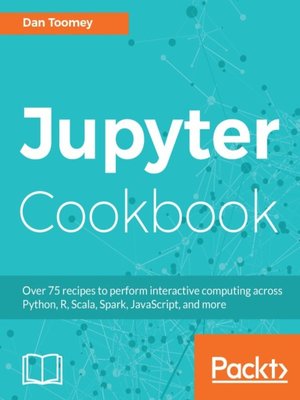
Sign up to save your library
With an OverDrive account, you can save your favorite libraries for at-a-glance information about availability. Find out more about OverDrive accounts.
Find this title in Libby, the library reading app by OverDrive.



Search for a digital library with this title
Title found at these libraries:
| Library Name | Distance |
|---|---|
| Loading... |
Leverage the power of the popular Jupyter notebooks to simplify your data science tasks without any hassle
About This Book
Who This Book Is For
This cookbook is for data science professionals, developers, technical data analysts, and programmers who want to execute technical coding, visualize output, and do scientific computing in one tool. Prior understanding of data science concepts will be helpful, but not mandatory, to use this book.
What You Will Learn
In Detail
Jupyter has garnered a strong interest in the data science community of late, as it makes common data processing and analysis tasks much simpler. This book is for data science professionals who want to master various tasks related to Jupyter to create efficient, easy-to-share, scientific applications.
The book starts with recipes on installing and running the Jupyter Notebook system on various platforms and configuring the various packages that can be used with it. You will then see how you can implement different programming languages and frameworks, such as Python, R, Julia, JavaScript, Scala, and Spark on your Jupyter Notebook. This book contains intuitive recipes on building interactive widgets to manipulate and visualize data in real time, sharing your code, creating a multi-user environment, and organizing your notebook. You will then get hands-on experience with Jupyter Labs, microservices, and deploying them on the web.
By the end of this book, you will have taken your knowledge of Jupyter to the next level to perform all key tasks associated with it.
Style and approach
The recipes in this book are highly practical and very easy to follow, and include tips and tricks that will help you crack any problem that you might come across while getting the most out of your Jupyter notebook.







